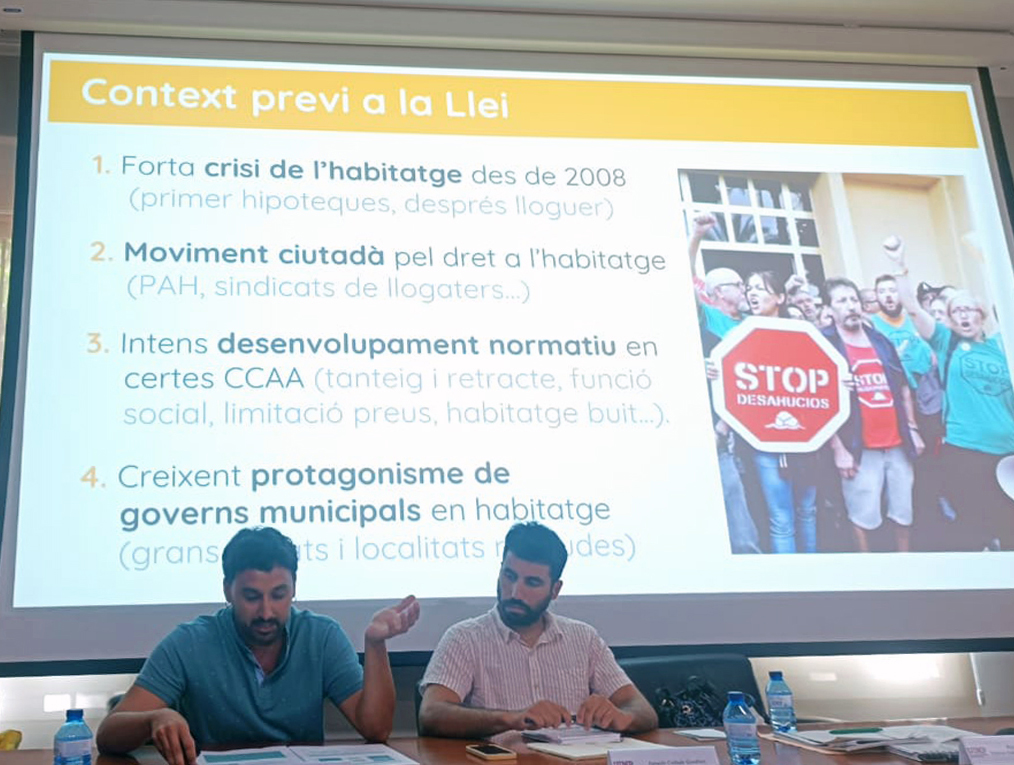Exploring the right to housing in Spain: some reflections
Posted on 22-09-2023
I had the chance to participate in the seminar, `Housing and Neighborhood´ (Vivienda y Vecindario), held in Valencia and organized by the Universidad Internacional Menéndez Pelayo. The seminar, directed by Carles Dolç Soriano and David Estal Herrero, provided an interdisciplinary platform for learning from academics, policymakers, and members of social movements and reflecting on the state of housing in Spain and the ongoing challenges it faces.
Historically, Spain has favoured private ownership in housing, and there have been limited public housing options. However, in recent decades, the landscape of housing has undergone significant changes. As affordable, adequate and sustainable housing seems unreachable for a big part of the population, issues such as the scarcity of social housing, the increasing vulnerability of the residents in certain urban areas and neighbourhoods, the growing need for community-oriented housing solutions, and the issue of reuse of vacant properties through rehabilitation, need to be addressed.
The starting point for the discussions was the new housing law, which came into effect in Spain in May. This landmark legislation is the first of its kind, aimed at establishing principles and guidelines for ensuring equal access to affordable and adequate housing for all. Doubts have arisen about the law's effectiveness, particularly regarding the lack of specific implementation mechanisms, as the responsibility for regulating the housing market and providing solutions falls on each autonomous community. Despite these challenges, the recognition of housing as a fundamental human right is steadily gaining ground.
As a consequence, the debate that took place focused on how this right to housing should be realized, taking into account all the current challenges, as well as the mistakes of past policies, and thinking on strategies and tools to achieve it. The seminar provided an opportunity for collective reflection on public housing policies, new architectural typologies and models that promote and support community living, and the enhancement of energy efficiency in vulnerable households facing energy poverty.
In the world that we live in today, a world vastly different from the times that produced the established housing systems, we face urgent social and environmental crises. Housing can no longer be viewed as a commodity with exchange value, it must be recognised as a shelter, a fundamental human need that takes precedence over all other societal concerns. This makes us wonder whether now is the moment for radical changes, to push for tangible solutions and for new models. These discussions and reflections make us think that we are maybe evolving towards new cultures of inhabiting.


